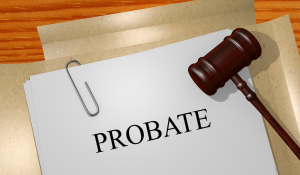What is a Probate Sale? Probate sale and estate Planning
Probate sale is the legal process of selling or division amongst heirs of assets of the person who has died without leaving the will. It covers all purchases, including cash, property, and investments.
A well-drafted financial power of attorney can help avoid the need for probate for certain assets. If the agent has the authority to manage and sell the principal's assets, including real estate, while the principal is alive, it may reduce the need for a probate sale after the principal's death.
It is a challenging task as numerous legal requirements need fulfillment. While many outside investors consider it an opportunity to buy a new house, it is a tough time for the family of the deceased. Likewise, it may seem a straightforward task, but it is daunting.
The court generally appoints a next of kin as an executor, who will coordinate the property sale with the court.
In this article, we will look into all details related to probate sale, how it works, its consequences, and its pros and cons. Therefore, keep reading to learn more about probate sales.
So, let us begin the talk!
Process of Probate Sale
Upon the person's death, if there is a will, the nominated person executes the division of assets. However, if there is no will, the court appoints the executor, who is generally a close family member, to oversee the distribution or sale of property.
So, here is how a probate sale works.
- The first step of a probate sale is the appointment of an executor by the court. An executor is responsible for the sale of the home. Moreover, the power remains with the court if the appointed executor takes an illegal action.
- The executor coordinates with a real estate agent to find the best sale price for the estate.
- Interested buyers then submit their offers and must include a minimum 10% down payment.
- Under powers vested by the court, the executor reviews all offers to accept or negotiate the bid.
- Upon finalization of prices, a court date is set for acceptance of the offer and subsequent sale of the property.
- The court will summon all related parties, including the executor, estate agent, and interested parties, to appear in the court on a specific date.
- The court will auction the property, with a starting price set at the accepted offer. The court will sell the property to the initial buyer if no incremental bids are received.
- If another bidder makes a higher bid than the starting price and wins it, he will earn a 10% down payment on the spot. At the same time, the initial bidder will get back his advance payment.
- Upon closure of bidding, the court will execute a contract between the executor and the successful bidder without added contingencies. Therefore, the executor will keep the property the same, and the buyer can inspect it within two weeks.
Probate Sale vs Regular Sale
One significant difference between a probate sale and a regular sale is that a court oversees the first one. A probate court administers the complete process of a probate sale; that is why a probate sale may take as long as one year or even more.
Likewise, regular sales offer little oversight, although they are subject to inspection and contingencies. Moreover, traditional sales may involve repairs and other work before making a sale deal. On the contrary, a probate sale is completed as-is; thus, buyers cannot ask for an alteration to the property.
Furthermore, the sale confirmation process is different from a regular sale. Buyers and sellers negotiate standard sales deals, whereas probate sales involve more than one buyer, requiring a bidding process.
Pros and Cons of Probate Sale
If you want to buy a new home, the pros and cons of making a probate sale are an exciting choice. Generally, probate sales offer the best rates and lower than market value, making them an attractive option.
However, there are certain downsides, as probate sales consume time and energy. Therefore, before buying a home through a probate sale, you must know the positives and negatives of the process.
-
Pros
- Since probate sales bring as-is conditions, the prices are slightly lower than the market rate of the same property.
- The court's involvement in the process makes it lengthy, thus making it intimidating. Therefore, the competition is comparatively lower in a probate sale.
- Probate has become an investment opportunity for real estate investors, as it carries low costs.
-
Cons
- Probate sales may last as long as one year, thus making it time-consuming.
- Buyers have to visit courts and make bids, which discourages specific buyers.
- You have to buy property on an as-is basis; Thus, chances of possible repair or alteration are likely low.
Buying through Probate Sale
If you plan to buy a property through a probate sale, here is a list of actions you need to take to make this happen.
- The first step is to find an estate up for probate sale. It may seem morbid, but you can check obituaries or local records to locate any such sale happening.
- Contact the executor of the estate for bidding and enquiring necessary information.
- You can also contact to make an offer if an executor is not reachable.
- Make a home inspection to avoid any future misunderstandings, as probate sale generally occurs on an as-is basis.
- Appear on the date of bidding as suggested by the court.
- Win the bid to proceed forward with the formal purchase of the property.
- You must submit a minimum of 10% of the price as an advance payment.
- Sign necessary documentation for transfer of the estate.
Since finding a probate sale is daunting, there are numerous probate real estate agents. These agents keep track of such sales; you can hire one of them to make this happen. Moreover, since they are experts in probate sales, they can negotiate a better price for you and fulfill documentary requirements without delay.
Frequently Asked Questions
How long does a probate sale take?
Probate sale is generally a lengthy process. The reason for a protracted period is due to the court's involvement. On average, it takes 6-12 months or even more. In contrast, a traditional sale is completed in about 70 days.
Do I need a probate sales lawyer?
Buying real estate through a probate sale is complex; therefore, having a lawyer is a better option. Since lawyers are experts and familiar with the probate process, they have become a preferred option.
Are probate sales cash only?
No! There are no legal limitations on cash sales. Like any other real estate transaction, other settlement options make a probate sale possible.
Parting Thoughts
Probate sale is a norm in case a person leaves no will before dying. In such a case, the court appoints an executioner, a close family member, to support the sale of the real estate. Therefore, any such sale the court oversees is called a probate sale.
Since legal proceedings for estate take longer than usual, probate sales may take up to a year. Likewise, probate sales are generally attractive for real estate investors as they carry less cost than the property's market value.
Furthermore, the process of probate sale is complex. The court appoints an executor, who negotiates the sale price. The court oversees the bidding process in the courthouse, and the subsequent sale is completed accordingly.
Understanding the pros and cons of a probate sale before being involved in the process is crucial. We hope you are well-versed in the concept of probate sale.

Michael Lester
I spent years flying Marine Corps combat missions believing I understood America’s role in the world. Today I work in national security and cybersecurity, helping organizations understand risk, resilience, and the systems we rely on. My writing continues the same mission—bringing clarity to complex issues and inviting people to look past slogans so we can understand who we are, what we do in the world, and why it matters.



